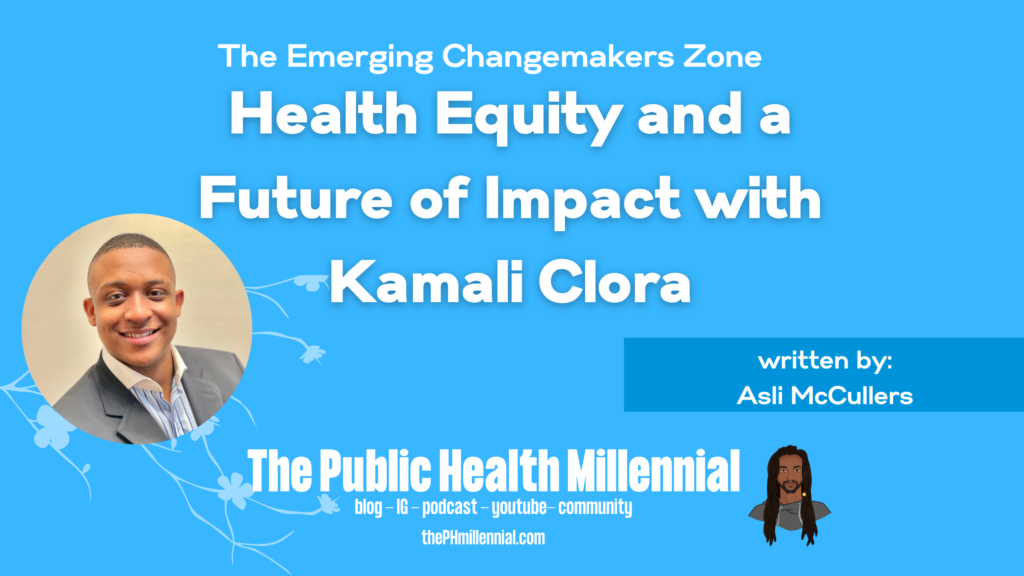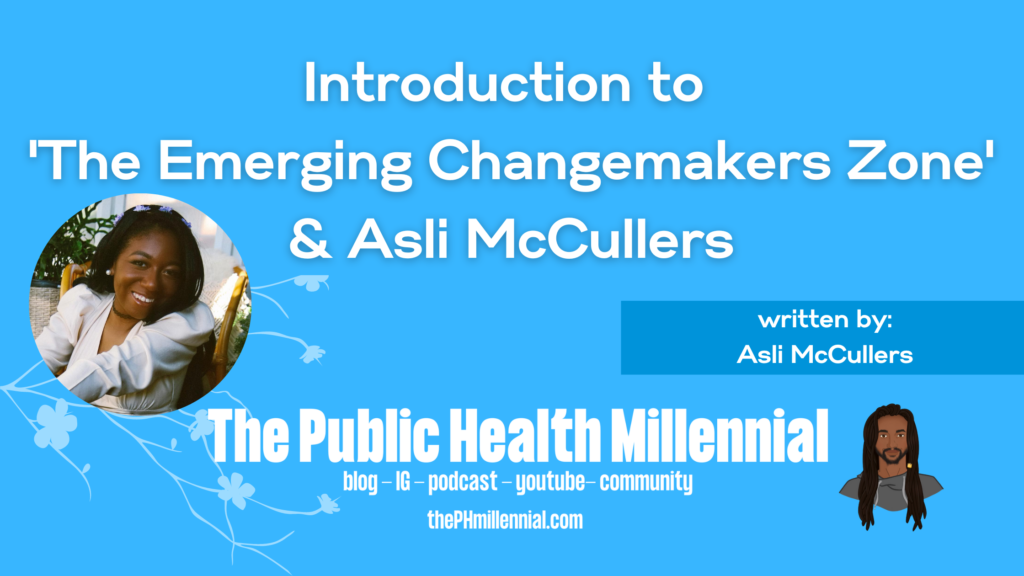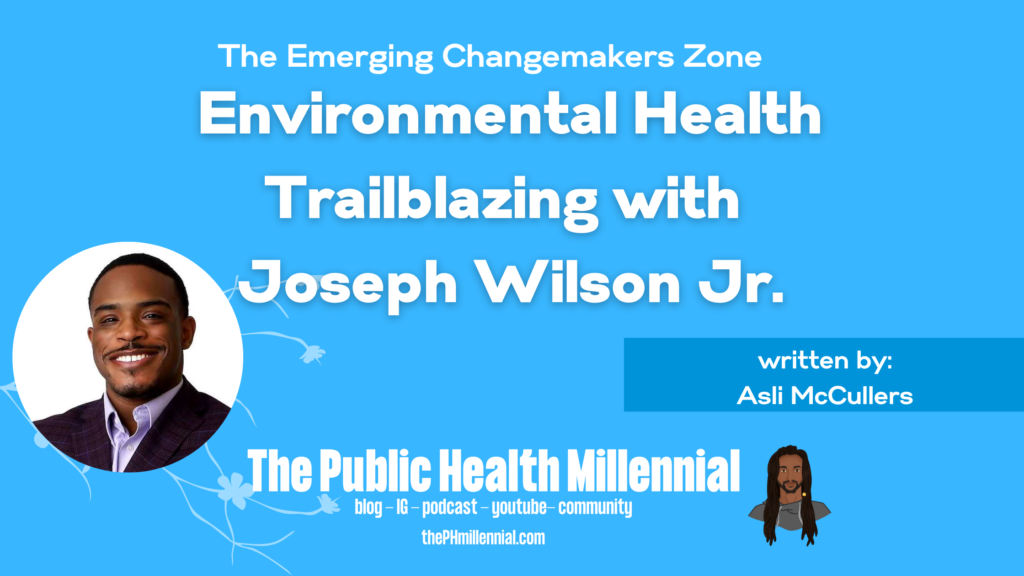Introduction
How do you materialize health equity as a student? Kamali is a Master of Public Health Candidate in the concentration of Health Care Management at Yale University, and earned his Bachelor’s in Public Health and University Honors at Wayne State University. This conversation covers his journey to Yale, his work towards materializing health equity through accessible health care, and his reflections for aspiring health equity leaders.
Here to There: Kamali’s Journey to Public Health at Yale
I wondered what led Kamali to his position as a health care management graduate student at Yale University. He shared how his participation in research during his earlier days at Wayne State University allowed him to delve deeper into health care. Kamali recalled;
“I knew there were other avenues in healthcare, but I didn’t know there was public health. After taking courses, I understood that through my research, I really wanted to have translational impact by entering communities, developing interventions, and working on the implementation side of things—that’s what got me into public health—wanting to work with populations and gain an understanding of health inequities that plague our communities.”
To address multi-level manifestations of inequity, Kamali initiated a dynamic array of research projects. Including nationally presented work on health equity in higher education, environmental injustice, healthcare systems, and a host of other critical topics. By junior year of undergrad, Kamali began expanding his skillsets to the hospital administration settings. His work in the prestigious Applebaum Fellowship exposed him to the importance of framing and empowering communities through relationship building. Kamali shared;
“Populations that have been historically disinvested need underrepresented practitioners…people who look like us, have mindsets of cultural humility and are willing to stand in gaps of health inequity and work towards mending them as changemakers—that’s where I felt I had the best contribution in public health.”
Kamali is excited to engage in an administrative fellowship at an academic healthcare institution to strengthen his knowledge base in management, collaborate with physicians-in-training, and reach into communities to build meaningful solutions for health inequity.
Making Health Equity Actionable: From Healthcare Policies to “Saving the Bees”
In health equity work, sometimes it can be easy to get lost in the “buzziness” of saying health equity, and not necessarily embodying or operationalizing health equity in any tangible way.
Kamali shared how his first understandings of health inequity trace back to his lived experience as a child relocating from Detroit to Belleville, Michigan, a suburb 30 miles out from the city. He shared;
“Just miles apart, you could see the stark differences—not only in the demographics, but in how the infrastructure was built…from green space to availability of resources…even pharmacies looked better. As a youngin’, you can’t really explain those differences, you just know that your scene has changed, and some things are easier—that was my first exposure to disparities.”
We went on to discuss how our social identities shape the lens with which we perceive health inequity and fuel our work as health equity practitioners. He shared;
“Inequity to me as a Black man is something I live with every day, something you live with every day…as a culture, it’s generational trauma. Inequity is the constant weathering of everyday struggle when we realize that other populations have resources that are more abundant than ours, and are in many ways, better off.”
Kamali gave gripping examples of when this injustice manifests, including historically racist glomerular filtration rate measurements, the targeting of Black communities by oppressive institutions, and even his own experience with asthma.
Kamali is already developing his plan to take action against health inequity, sharing, “What I hope to do in the healthcare space is use my administrative lens to shape culture, and bridge that back into the community through empowerment, and sharing knowledge with patients on how to be independent advocates for themselves in healthcare spaces…I look forward to having a health equity mindset, and being able to use that to establish a synergy that ensures that everyone is on board.”
Kamali has been putting his vision into practice by starting Bee Plus Detroit, a non-profit organization he formed, which was developed to “save the bees” and increase pollinator conscious nutrition in local historically underserved communities. A passion project grown out of bee farm volunteering, Bee Plus Detroit addressed food insecurity and the lack of nutrient dense food options in Detroit by conceptualizing how co-existing with bees can increase our access to essential micronutrients, diversify plants species and even improve air quality.
Did you know that bees contribute to 75% of the world’s global food supply? Wow–keeping that in mind next time I 100 meter dash away from one! I shared with Kamali that as someone who is horrified by most flying insects lol, I was somehow calmed by the important work he did with Bee Plus Detroit—bees are just trying to help us live our lives!
Despite the organization being inactive with Kamali’s team forging new directions after graduating, they certainly did invaluable work in paving a unique path for health equity through agriculture and ecological advancement in marginalized communities.
Reflections for Aspiring Health Equity Leaders
Are you an undergrad or postgrad interested in tips for starting to work in health equity? Kamali’s biggest message to aspiring students is that even if a health equity issue doesn’t apply to us directly – maybe you’re not a part of a marginalized group – that we all still have the responsibility to embed health equity deeply in our processes.
Kamali stated, “The thing about health equity is that you don’t necessarily have to have experienced health inequity to know that it’s important to achieve, because it matters to a community –- that may not be your community — who suffers great disadvantages from a system of inequality that affects how people live, learn, work, and play”.
We talked about how we may have certain privileges that we hold simultaneously to our social identities that our oppressed (i.e. being Black, but not first generation students), and how this should motivate us to amplify the stories of others and to shift from allyship to full-blown accomplices to fellow minoritized folk. Kamali shared, “When you’re coming to the health equity space, you’re coming to a space of learning”. Sometimes this can be challenging jumping through hoops of bureaucracy, politics, imposter syndrome and other barriers. “However,” Kamali says, “you have to be able to challenge systems…deliver that message of health equity knowing that you can inspire individuals to join in that mission—if you can do that, you’re golden, and people will continue to join in as time goes.”
“When you think about your potential impact on the world, what makes you smile…what gives you that spark to keep going?” was my favorite question to ask Kamali as we rounded out our conversation. He prides himself as a servant leader, and as a person who’s in public health, it’s just in the DNA of what we do to serve others. Kamali said; “In public health, we can not only empower other leaders, but also provide a lasting impact on the people we serve. They know it means something to them, and that’s what binds…that’s why I keep doing what I’m doing.”
Huge thank you again to Kamali for chatting with me—it was an absolute honor and I’m so excited to continue rooting for him in all that he will do! 😊



